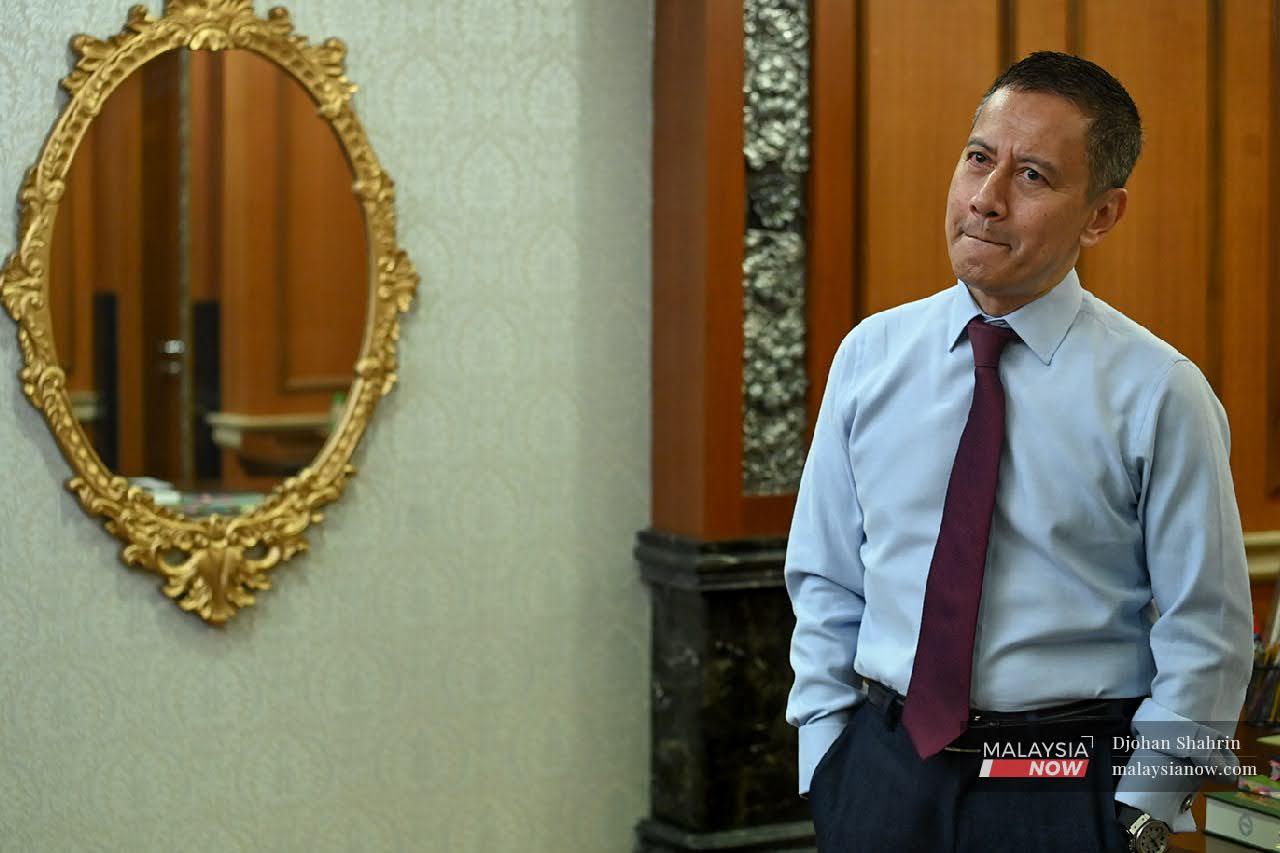Breaking his silence, Dewan speaker schools those calling for Parliament to reconvene
Azhar Harun tells why the suspension of Parliament is allowed by the very same Federal Constitution that critics have cited.
Just In
Dewan Rakyat Speaker Azhar Harun has weighed in on the debate over the suspension of Parliament during the current emergency, saying there appears to be a lack of understanding among critics of the move about the concept of the division of powers as provided by the Federal Constitution.
He said many critics of the emergency were selective in their defence of the constitution in order to gain political mileage.
“We shouldn’t blow hot and cold and accept whatever actions when they benefit us or our aspirations or desires, only to shout and scream when those actions don’t serve our interests,” Azhar, who is trained as a lawyer, wrote on MalaysiaNow, breaking his silence over a series of calls by opposition MPs including his own deputy, Azalina Othman Said, who recently urged for Parliament to reconvene.
He said while the doctrine of separation of powers between the three institutions – the government, Parliament and the judiciary – was never followed to the letter in any country, the division of powers between them was a legal principle that must be applied.
Azhar Harun: Danger of quoting the constitution selectively for political purposes
“That is why the courts cannot entertain any question as to the validity of any proceeding of the Dewan Rakyat. In other words, in this situation, the courts do not have any source of law to do so. If the courts, in defiance of the express provision of the Federal Constitution, proceed to adjudicate on the validity of any proceedings of the Dewan Rakyat, that would then be against the law. That is because the courts have no source of law to do so.”
Opposition politicians from Pakatan Harapan have initiated legal proceedings against the government, seeking declarations that the emergency declared by the Agong in January this year was unconstitutional.
PKR chief Anwar Ibrahim, who filed a suit on the matter, had described the move as an “egregious abuse of power”.
In April, several opposition MPs joined hands with six NGOs to seek a court declaration on the roles of Parliament and the judiciary, including to state whether the cancellation of parliamentary meetings could be challenged in court.
‘Interferences’ are normal, constitutional
Azhar said it was normal for the three branches of the administration to interfere in each other’s domain, in response to the argument that the government was wrong to suspend Parliament.
He gave the example of Parliament passing a law stating that anyone possessing a certain amount of illegal drug should be presumed to be a trafficker.
“This provision takes away the power of the courts to determine whether that person is in fact and in law a trafficker,” he said, adding that Parliament’s “interferences” were valid as provided for under the constitution.
Similarly, the view that the government has no right to stop parliamentary proceedings should be argued out based on constitutional provisions, he said.
“The emergency and the ordinances that have so far been promulgated are actions taken under a specific source of law, namely under and pursuant to the Federal Constitution,” he wrote.
“They are backed and substantiated by valid and enforceable legal principles spelt out in the Federal Constitution just as the power of the courts to curtail and even reverse some of the actions by the executive.
“Whether we like it or not, that is the power of the Cabinet or executive and that power has been exercised.”
Azhar said he was only “stating the law as it is”, adding that he has no political ambition or “aspiration for any political party post”.
“Consequently, I do not feel the need for any political posturing or any desire to dive into any political maelstrom for the purpose of thrusting myself into political populism,” he wrote.
Subscribe to our newsletter
To be updated with all the latest news and analyses daily.
